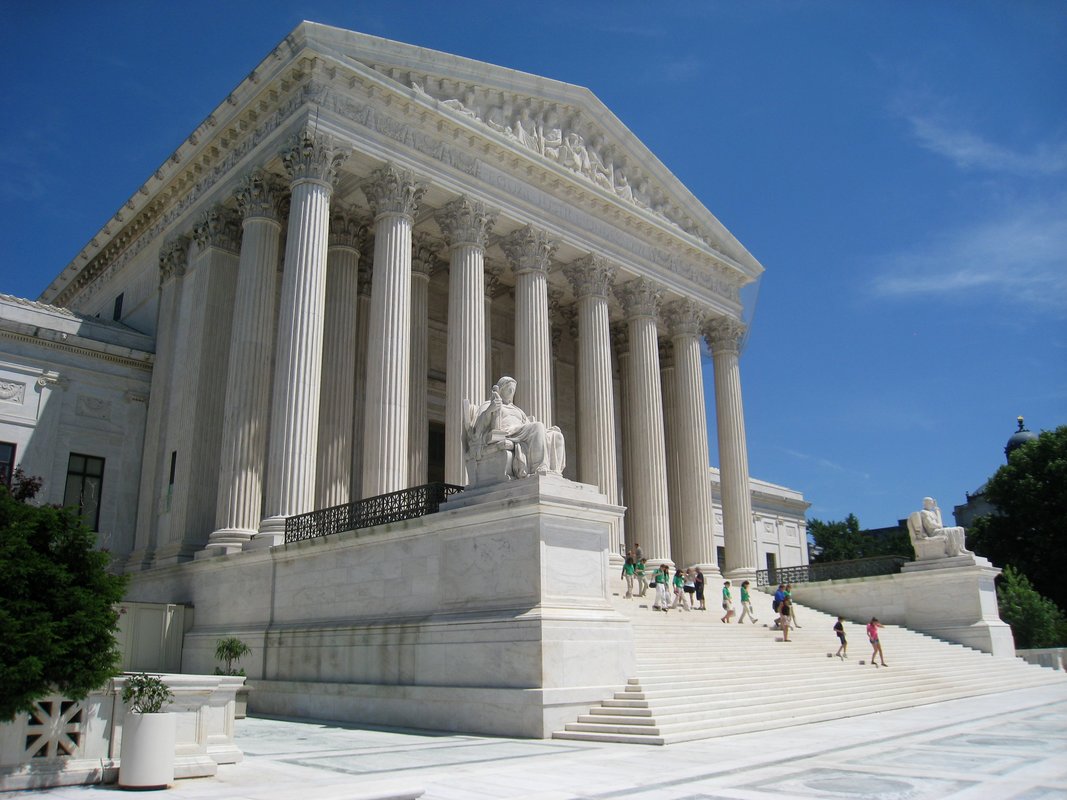|
Today, December 4, 2017, the Supreme Court has allowed the third version of President Trump's travel ban to come back. Citizens of the eight countries listed (Iran, Somalia, Syria, Yemen, Libya, Chad, North Korea, and Venezuela) are NOT allowed to travel to the United States, unless they qualify for an exception. Previously, in June 2017, the Supreme Court allowed the travel ban to come back, but in a limited way. The Court stated that an immigrant from one of the banned countries was required to have a personal or professional relationship in the United States, which was defined as a relationship with a qualifying family member in the United States or a professional relationship with a U.S. company or university. But now, such a qualifying relationship does NOT matter, as the Supreme Court has now ruled that the travel ban can be implemented to the FULLEST extent. As we mentioned in our previous article regarding the third version of the travel ban, this is the most concerning edition. It provides absolutely NO time limit or deadline for the ban. In other words, it is an indefinite ban that could become the rule of law for years to come.
We have seen the travel ban come and go constantly since January 2017. President Trump issued two Executive Orders, and now a Presidential Proclamation. Since January, many states have challenged the travel ban (sometimes referred to as the Muslim Ban). We have seen several appeals courts blocking the enforcement of the Executive Orders. One of the appeals even went to the Supreme Court before this. The current Presidential Proclamation was issued in September 2017, and since then there have been several lawsuits against it. Now, we have to wait to see what happens with the outstanding lawsuits. The courts might determine that the law is illegal, but the case could be pushed back up to the Supreme Court. We still have a long journey ahead to see how the Travel Ban will ultimately take effect. For now, if you or a loved one is affected by this Presidential Proclamation/travel ban/Muslim Ban, here are some things you need to know: 1. Countries in the Ban: Somalia, Syria, Iran, Yemen, Libya, Chad, Venezuela and North Korea. Also, nationals of Iraq will be subject to more screening measures as well. 2. Country-Specific Restrictions: The restrictions for each country is a little different.
You can read more about the Supreme Court's ruling in this The New York Times's article. For more information on the Muslim travel ban and other immigration topics, please visit our articles page here. For additional questions, please contact us at www.ImmigraTrust.com and please subscribe to our Facebook page for updates! --Najmeh Mahmoudjafari, Esq. Najmeh is the Founder and Lead Immigration Attorney at ImmigraTrust Law (www.ImmigraTrust.com), an immigration law practice in Orange County, California, representing individual and corporate clients in all 50 U.S. States and internationally. Najmeh can be reached at [email protected].
1 Comment
|
PostsLatest posts and news from our top immigration lawyers Archives
June 2024
Categories
All
|
- Home
- 🗽TELL US ABOUT YOUR CASE
- About Us
- فارسی
- Book Online
- Reviews
-
Services
-
Visas
>
- Fiance (K-1)
- Extraordinary Ability (O)
- NAFTA Professionals (TN)
- Treaty Traders (E-1 Visa)
- Treaty Investors (E-2)
- Professional (H-1B)
- Visitors (B)
- Student (F-1)
- Intercompany Transfers (L-1)
- Religious Workers (R)
- International Organizations (G)
- Australian Professionals (E-3)
- Exchange Visitors (J)
- Cultural Exchange (Q)
- Diplomats (A)
- Trainees or Special Education Exchange Visitor (H-3)
- Journalists (I)
- Green Cards >
- Investors >
- Citizenship
- Employers >
- Mandamus Lawsuits for USCIS Delays ⚖️
-
Visas
>
- Blog
Trust in Us with Your Immigration Success! |
|
|
Immigration lawyer Najmeh Mahmoudjafari, Esq. (ImmigraTrust Law) represents immigration law clients nationwide (all 50 States), globally and also in and around Orange County, including: Costa Mesa | Corona del Mar | Cypress | Fountain Valley | Garden Grove | Huntington Beach | Irvine | Los Alamitos | Los Angeles | Mission Viejo | Newport Beach | Orange | San Diego | San Francisco | Santa Ana | Stanton | Tustin | Westminster
Disclaimer
The information provided on ImmigraTrust's website is for general informational purposes only and does not constitute legal advice. Every legal situation is unique; for specific advice tailored to your circumstances, please consult with a qualified attorney. Contacting ImmigraTrust Law through this website does not establish an attorney-client relationship. Please do not send any confidential information until such a relationship has been established in writing. |
©2024 by ImmigraTrust Law.



